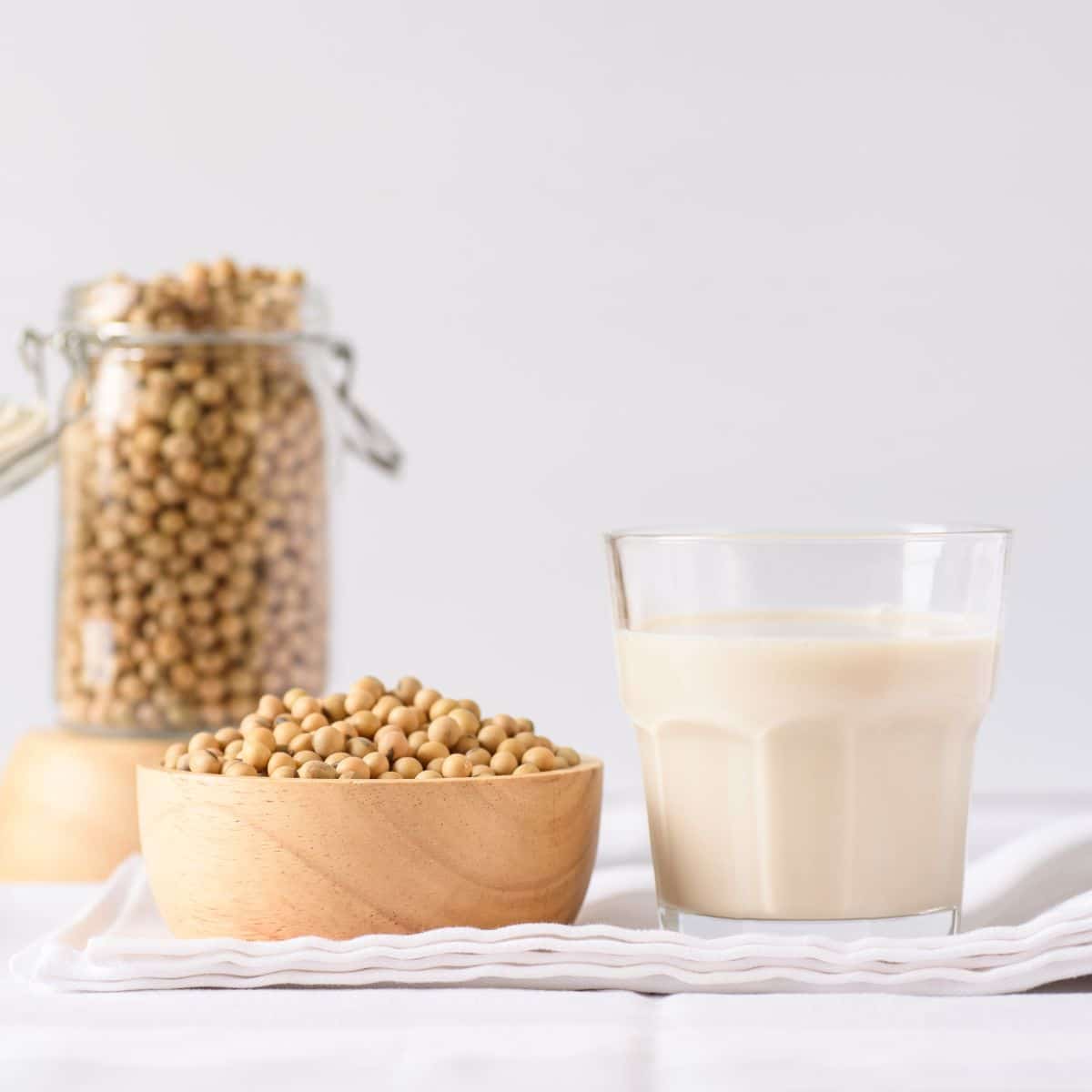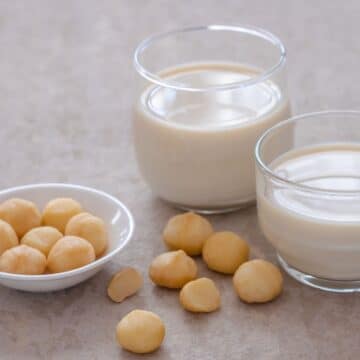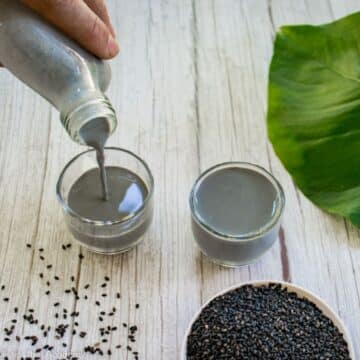Soybean milk is a nutritious alternative to cow's milk that has been enjoyed for centuries in Asia. It's an excellent source of protein, fiber, vitamins, and minerals, and is low in saturated fats. Soybean milk is also naturally lactose-free, making it a great option for those who are lactose intolerant or vegan. While store-bought soy milk is readily available, making fresh soy milk is surprisingly easy and can have many benefits.

How to make fresh soybean milk
To make fresh soybean milk, you'll need dried soybeans, water, and a blender.
- Soak the soybeans overnight in water to soften them, then drain and rinse them thoroughly.
- Blend the soybeans with fresh water until they're finely ground and the mixture is creamy.
- Strain the mixture through cheesecloth or a nut milk bag to remove any solids.
- Place the milk into a saucepan and cook on a gentle simmer for 15-20 minutes.
- Strain again, and allow to cool.
- Add in any sweetener or flavorings - whisk well.
- You have fresh, creamy soybean milk that can be used in smoothies, baked goods, or as a dairy milk alternative.

Benefits of making fresh soybean milk
One of the main benefits of making your own soybean milk is that it's free from additives and preservatives commonly found in store-bought versions. These additives can include thickeners, sweeteners, and synthetic vitamins, which may not be necessary for optimal health. By making your own soybean milk, you have complete control over the ingredients and can customize it to your taste.

Nutrition content of homemade soybean milk
In addition to being additive-free, fresh soybean milk may also have higher nutrient content than store-bought versions. This is because the nutrients in soybeans degrade over time, and the longer the milk sits on the shelf, the more nutrients it loses.
Making fresh soybean milk ensures that you're getting the most nutrients possible from the beans. Soybean milk is an excellent source of protein, calcium, iron, and vitamins.

Soybean nutrition
- Soybeans are a nutrient-dense food that provides a wide range of essential nutrients.
- They're an excellent source of protein, with one cup of cooked soybeans providing approximately 29 grams of protein, making it a great option for vegetarians and vegans looking to increase their protein intake.
- Soybeans are also a rich source of fiber, with one cup of cooked soybeans providing approximately 10 grams of fiber.
- In addition to protein and fiber, soybeans are also a great source of vitamins and minerals. One cup of cooked soybeans provides approximately 36% of the daily recommended intake of iron, which is important for the production of red blood cells and for preventing anemia.
- Soybeans are also a good source of calcium, magnesium, and potassium, which are important minerals for bone health, muscle function, and blood pressure regulation.
- This mighty bean is also one of the few plant-based sources of omega-3 fatty acids, which are important for brain function and reducing inflammation. Soybeans contain the omega-3 fatty acid ALA, which can be converted into EPA and DHA in the body.
- Soybeans contain phytochemicals called isoflavones which have been shown to have health benefits

More plant milk recipes

📋 Recipe

Ingredients
Equipment







Did you make this recipe? Let me know!